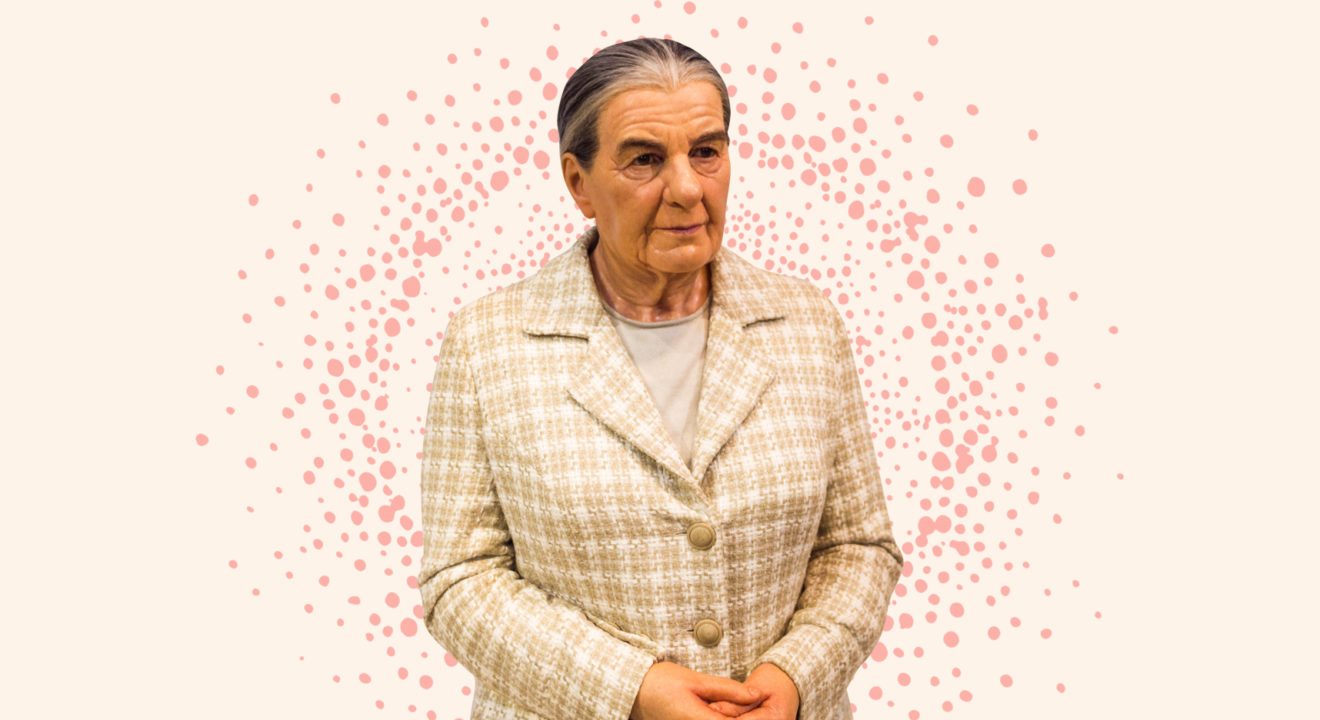Inspiration October 14, 2016


NAME: Golda Meir
LIFETIME: May 3, 1898 – December 8, 1978
WHAT SHE IS KNOWN FOR: Golda Meir was an Israeli schoolteacher, kibbutznik community member, stateswoman and the fourth Prime Minster of Israel. She was Israel’s first – and remains the only – female to hold such an office. She was lovingly called the “Iron Lady” before Margaret Thatcher adopted the moniker.
WHY WE LOVE HER: Meir was born in what is now the Ukraine, but her family moved shortly after to Milwaukee to find work in the face of the pogrom. When her mother wanted her to leave school to be married, she declined and bought herself a train ticket to Denver, where she moved in with her sister. There she was exposed to Zionism, women’s suffrage and other inspirational movements of the day. After finishing school, she entered a teacher’s college and began dating future husband Morris Myerson. When they moved to Palestine (later Israel) together in 1921, she and her husband moved into a kibbutz community. Her duties included picking almonds, planting trees, working in the chicken coops and running the kitchen.
In 1924, the couple left the kibbutz for Jerusalem, where they had two children. She was then elected to the Working Women’s Council and she was sent as an emissary to the United States for two years. In 1946, Meir became the acting head of the political department of the Jewish Agency and became the primary negotiator between Palestine and the British authorities. At the signing of the Israeli Declaration of Independence – she was one of the 24 statesmen to sign the Declaration – she would be the first to carry an Israeli-issued passport. From 1949 to 1956 she served as the Minister of Labor in the Knesset, taking on welfare, housing and immigration projects, and in 1956 became the Foreign Minister. On February 26, 1969 she was elected former Prime Minister Eshkol’s successor and served in that position until her resignation in 1974.
FUN FACT: At the outset of World War II, Meir was elected to be the Jewish representative at the Évian Conference, called by FDR to discuss the Jewish refugee crisis. Meir was disappointed by the lack of support from the majority of the countries. She said, “There is only one thing I hope to see before I die and that is that my people should not need expressions of sympathy anymore.”